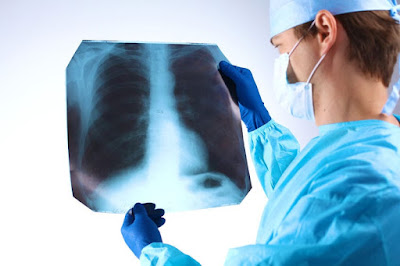Bell's Palsy: Causes, Symptoms, Treatment
Sudden facial muscle weakness is one of the signs of Bell's palsy. In most situations, the deficiency is only temporary and improves over a number of weeks. Half of your face seems to droop as a result of your weakness. Your smile is one-sided, and the eye on that side of your face tends to close.
Acute facial palsy is also another name of Bell's Palsy. It can strike someone at any age. The exact reason for this is unknown. It's thought to be caused by swelling and inflammation of the nerve that controls one side of your face's muscles. It may also be a reaction that happens as a result of a viral infection.
Bell's palsy is a condition that affects the majority of people for a short period of time. Within a few weeks, symptoms usually begin to improve and full recovery takes about six months. A small number of people will experience some Bell's palsy symptoms for the rest of their lives. Bell's palsy will recur in rare cases.
Causes of Bell's Palsy:-
The facial nerve regulates the majority of facial muscles as well as portions of the ear. From the brain to the face, the facial nerve travels through a small bone gap.
When the facial nerve is inflamed, it presses against the cheekbone or pinches in the small gap. The nerve's protective covering can be damaged as a result of this.
If the nerve's protective covering is damaged then the signals from the brain to the muscles in the face can not be properly transmitted. It results in weakened or paralyzed facial muscles. The exact explanation for this is unknown. When a virus which is commonly the herpes virus, inflames the nerve. Cold sores and genital herpes are also caused by the same virus.
The following viruses have been connected to Bell's palsy:-
- Chickenpox and shingles virus
- Cold sores and genital herpes virus
- Epstein-Barr virus, or EBV, responsible for mononucleosis
- Cytomegalovirus
- Mumps virus
- Influenza B
- Hand-foot-and-mouth disease (coxsackievirus)
Symptoms of Bell's Palsy:-
Blinking, eye-opening and closing, smiling, salivation, lacrimation (tear production), and frowning are all controlled by the facial nerves. They also connect to the muscles of the stapes. It’s a hearing bone in the ear.
The following symptoms will occur when the facial nerve malfunctions, as in Bell's palsy:
- One side of the face is suddenly paralyzed or weak.
- Having trouble closing one of your eyelids
- Since it does not blink, the eye gets irritated and too dry.
- Changes in the number of tears produced by the eye
- Parts of the face drooping, such as one side of the mouth
- One side of the mouth drooling
- Facial expressions are a challenge
- Having trouble closing one of your eyelids
- Since it does not blink, the eye gets irritated and too dry.
- Changes in the number of tears produced by the eye
- Parts of the face drooping, such as one side of the mouth
- One side of the mouth drooling
- Facial expressions are a challenge
- It's possible that your sense of taste will change.
- Sound sensitivity may be caused by an affected ear.
- On the affected side, pain in the front or behind the ear
- Headache
- Sound sensitivity may be caused by an affected ear.
- On the affected side, pain in the front or behind the ear
- Headache
If you experience any of the above symptoms then seek medical help immediately. You can also visit KRIMS hospital in Nagpur. It is the top multispecialty hospital in Nagpur.
Treatment for Bell's Palsy:
In the acute phase of Bell's palsy, the aim of treatment is speedy recovery and avoiding corneal complications. With or without medication, most of the people with Bell's palsy recover fully. Bell's palsy has no immediate treatment, but your doctor should recommend medicines or physical therapy to help you recover faster. Physical exercise, corticosteroids, and antiviral agents are also used to speed up recovery. Bell's palsy is rarely treated with surgery.
While Bell's palsy is not caused by a stroke, it may cause symptoms that are similar.
If you have facial weakness or drooping then visit KRIMS Hospital to find out what's causing it and how serious it is. KRIMS Hospital is considered as one of the best hospitals in Nagpur.
Treatment for Bell's Palsy:
In the acute phase of Bell's palsy, the aim of treatment is speedy recovery and avoiding corneal complications. With or without medication, most of the people with Bell's palsy recover fully. Bell's palsy has no immediate treatment, but your doctor should recommend medicines or physical therapy to help you recover faster. Physical exercise, corticosteroids, and antiviral agents are also used to speed up recovery. Bell's palsy is rarely treated with surgery.
While Bell's palsy is not caused by a stroke, it may cause symptoms that are similar.
If you have facial weakness or drooping then visit KRIMS Hospital to find out what's causing it and how serious it is. KRIMS Hospital is considered as one of the best hospitals in Nagpur.




Comments
Post a Comment